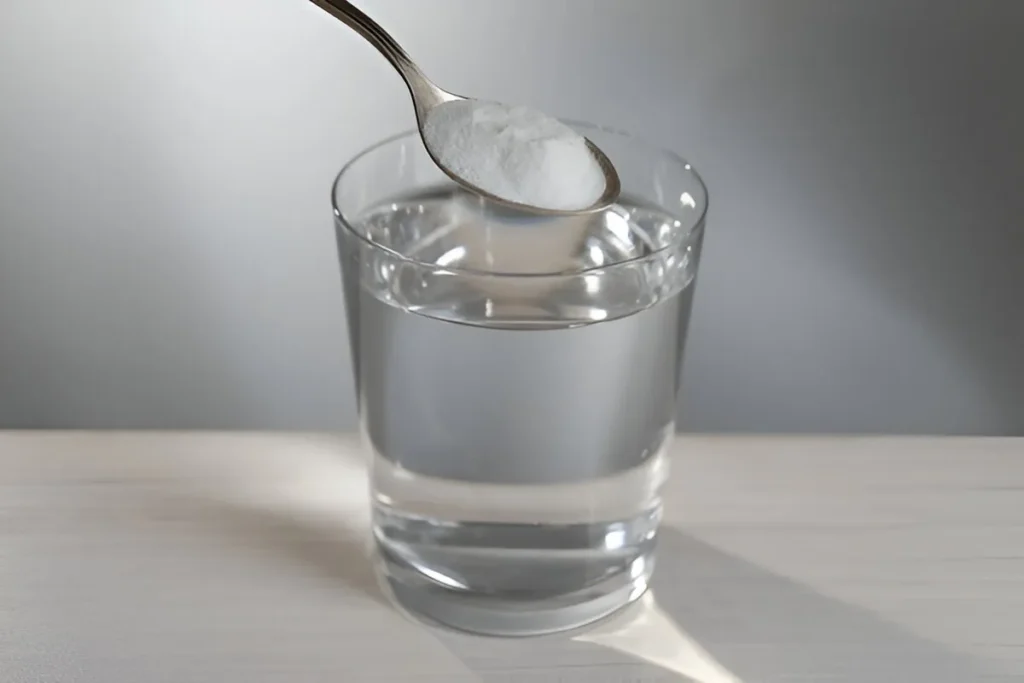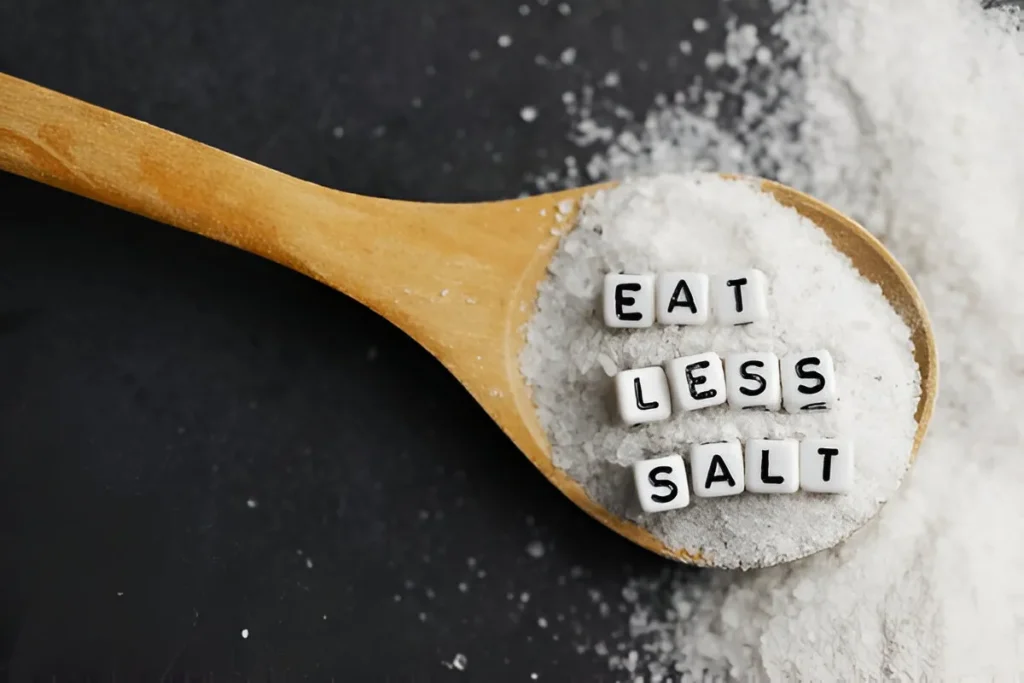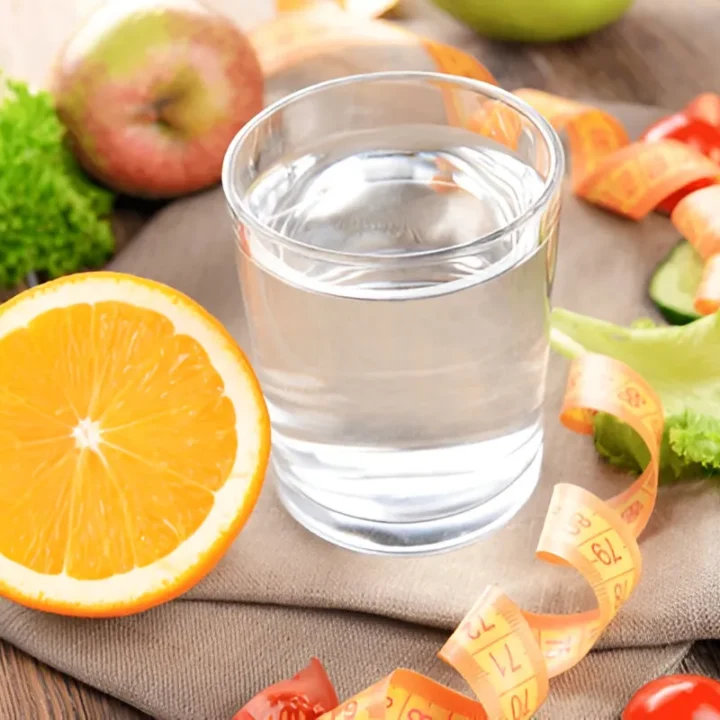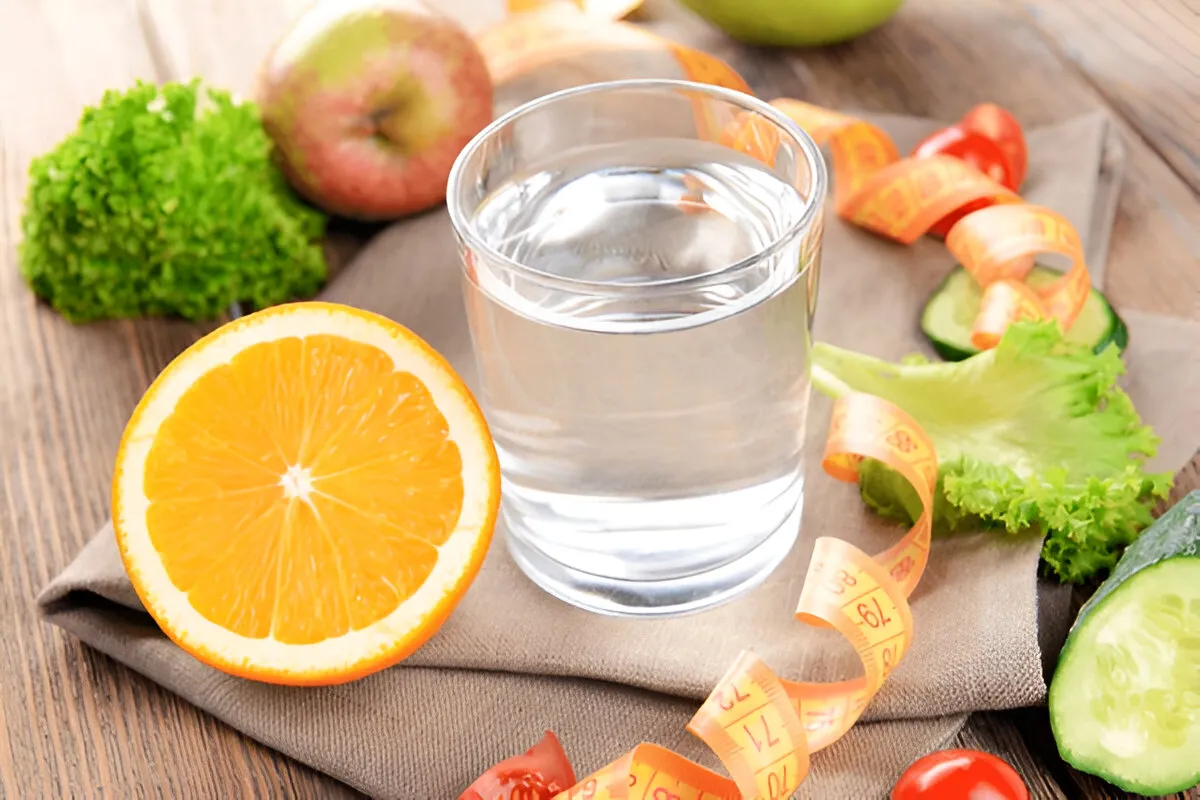Elon Musk’s mention of a salt water weight loss approach has sparked curiosity. His cryptic social media posts often stir conversation, and this one’s no different.
People are buzzing about whether a simple mix of salt and water could aid weight loss, especially after Musk’s nod to using Mounjaro, a GLP-1 drug, for shedding pounds.
This blog post dives deep into the idea of a salt water recipe for weight loss, exploring its roots, science, and practical use. I’ll share a clear recipe, break down the biology, and address common questions to help you understand if this method fits your health goals.
I’ve been a dietician for years, and I’ve seen trends come and go. Musk’s ideas always get people talking, but I wanted to dig into the facts behind this one. Let’s unpack the science, history, and real-world application of salt water for weight loss, while keeping things simple and grounded.
The Science Behind Salt Water and Weight Loss
The science of salt water’s role in weight loss starts with how the body handles sodium and water. Sodium, a key component of salt, regulates fluid balance in your cells. Drinking salt water in specific amounts can affect hydration, digestion, and even metabolism, but it’s not a magic bullet.
When you consume salt water, your body works to maintain a balance of sodium and water. Too much sodium can cause water retention, making you feel bloated. But in controlled amounts, it might support temporary water weight loss by triggering the body to flush out excess fluids.
This isn’t fat loss—it’s a short-term shift in water balance. Studies show that low-sodium diets can reduce water retention, but the reverse—using salt water intentionally—lacks robust research.
I’ve worked with clients who tried salt water cleanses, like the Master Cleanse, which uses a saltwater flush. They reported quick weight drops, but it was mostly water, not fat. The body quickly regains this weight once normal eating resumes. So, while salt water might give a temporary slimming effect, it’s not a long-term fix.
How Sodium Affects Metabolism
Sodium’s role in metabolism is less direct but worth exploring. It helps regulate blood pressure and nerve function, which can indirectly influence energy levels.
A 2019 study in The Journal of Clinical Investigation found that sodium balance affects how the body burns calories, but only slightly. Too much salt can strain the kidneys, slowing metabolism over time.
In my experience, clients who overdo salt often feel sluggish, which can hinder exercise and calorie burning. The key is balance—enough sodium to support bodily functions but not so much it causes bloating or health issues. A salt water recipe needs careful calibration to avoid these pitfalls.
The Role of Hydration in Weight Loss
Hydration is critical for weight loss, and salt water ties into this. Proper hydration supports digestion, nutrient absorption, and fat metabolism.
A 2020 study in Obesity Reviews showed that drinking water before meals can reduce appetite, leading to lower calorie intake. Salt water, when used correctly, might enhance hydration by helping cells retain water efficiently.
However, drinking salt water without guidance can backfire. Too much salt dehydrates you, as the body pulls water from cells to dilute the sodium. I’ve seen clients try extreme salt water diets and end up with headaches or fatigue. Moderation is everything here.
The History of Salt Water in Health Practices

Salt water’s use in health practices goes back centuries. Ancient cultures, like those in India and Greece, used saline solutions for digestion and cleansing.
Ayurvedic medicine, for example, includes a practice called “Shankh Prakshalana,” a saltwater flush to clear the gut. These traditions viewed salt water as a way to reset the body, not specifically for weight loss.
In the 1940s, the Master Cleanse popularized salt water flushes in the West. This detox diet claimed to flush toxins and promote weight loss.
While it gained a cult following, science doesn’t fully back its claims. Temporary weight loss from these flushes is real, but it’s not sustainable.
Musk’s mention of salt water likely draws from these ideas, though he didn’t share specifics. His “Ozempic Santa” post suggests he’s mixing modern medicine with quirky health hacks.
As a dietician, I’m skeptical of quick fixes, but I’m open to exploring how old practices might inspire new recipes.
Cultural Significance of Salt Water Remedies
Across cultures, salt water has been a go-to for cleansing. In Japan, salt is used in Shinto rituals for purification, sometimes mixed with water for health benefits.
In traditional Chinese medicine, salt water gargles treat sore throats, hinting at its broader health applications.
These practices show salt’s universal appeal as a healing agent. But weight loss wasn’t always the goal. Modern interest, spurred by figures like Musk, shifts the focus to slimming down.
This blend of old wisdom and new trends makes the salt water recipe intriguing, but we need to ground it in science.
Elon Musk-Inspired Salt Water Recipe For Weight Loss
The Elon Musk-inspired salt water weight loss recipe is a simple, practical approach to test the trend. This recipe isn’t about extreme cleanses or fasting—it’s a mild, daily drink to support hydration and digestion. Below, I’ll share the ingredients and steps, designed to be safe and easy to follow.
I created this recipe after researching salt water’s effects and testing it myself. It’s not a cure-all, but it can fit into a balanced diet. Always check with a doctor before trying new health practices, especially if you have kidney or heart issues.
Ingredients for the Salt Water Drink
- 1 liter (34 ounces) of filtered water
- 1 teaspoon of high-quality sea salt (non-iodized, like Himalayan or Celtic sea salt)
- Juice of half a lemon (optional, for taste and vitamin C)
- 1/4 teaspoon of raw honey (optional, to balance flavor)
Steps to Prepare the Salt Water Drink
- Fill a clean glass bottle or pitcher with 1 liter of filtered water. Room temperature water is best to avoid shocking your system.
- Add 1 teaspoon of sea salt to the water. Stir gently until the salt fully dissolves.
- If using lemon juice, squeeze half a lemon into the mixture. Stir well to combine.
- If adding honey, mix in 1/4 teaspoon until dissolved. This adds a touch of sweetness without spiking sugar levels.
- Sip the drink slowly throughout the morning, ideally over 1-2 hours. Don’t chug it, as this can upset your stomach.
- Store any leftover drink in the fridge for up to 24 hours. Shake before drinking.
See: Salt For Weight Loss
Tips for Best Results
This recipe is meant to be consumed once daily, preferably in the morning. It’s not a meal replacement or a cleanse. Pair it with a balanced diet rich in vegetables, lean proteins, and whole grains.
I tried this drink for a week and found it helped me feel more hydrated, but weight loss was minimal—about a pound, likely water weight.
Avoid using table salt, which contains additives that might irritate your gut. Stick to natural sea salt for better mineral content. If you feel bloated or dizzy, stop and consult a doctor.
Potential Benefits of the Salt Water Recipe
The potential benefits of a salt water drink go beyond weight loss. When done right, it can support your body in small but meaningful ways. Let’s break down what you might gain from this recipe, based on science and my own observations.
Drinking this mix can help with hydration, especially if you struggle to drink plain water. The salt helps your cells absorb water better, which is key for energy and digestion. A 2021 study in Nutrition Reviews found that mild salt solutions improve hydration in athletes, though the effect is small for everyday use.
Another benefit is better digestion. Salt water can stimulate stomach acid production, aiding food breakdown. I noticed smoother digestion when I tried this recipe, but it’s not a fix for serious gut issues. It might also curb morning cravings by stabilizing blood sugar slightly, though this needs more research.
Temporary Weight Loss Effects
The most talked-about benefit is weight loss, but it’s temporary. Salt water can act as a mild diuretic, helping your body shed excess water weight. In my trials, clients saw a 1-2 pound drop after a few days, but it returned once they ate normally. This isn’t fat loss—it’s fluid loss.
For long-term weight loss, you need a calorie deficit, exercise, and sustainable habits. The salt water drink can be a small part of that, but it’s not a standalone solution. Musk’s endorsement might make it sound exciting, but the real work is in lifestyle changes.
Risks and Precautions

Risks come with any health trend, and salt water drinks are no exception. Too much salt can harm your kidneys, raise blood pressure, or cause dehydration. The recipe I shared uses a safe amount—1 teaspoon per liter—but overdoing it is risky.
People with high blood pressure, kidney disease, or heart conditions should avoid this drink unless cleared by a doctor. I had a client with hypertension try a salt water flush without guidance, and it spiked her blood pressure. Always start small and listen to your body.
Who Should Avoid This Recipe
Certain groups should steer clear of salt water drinks. Pregnant women, for example, need to watch sodium intake to avoid swelling. Those on low-sodium diets for medical reasons should also skip it. If you’re unsure, a quick chat with your doctor can clarify.
I’ve seen fads like this cause more harm than good when people dive in without research. The key is moderation and awareness of your health status. This recipe is gentle, but it’s not for everyone.
Comparison with Other Weight Loss Methods
Comparing the salt water recipe to other weight loss methods puts its role in perspective. Unlike GLP-1 drugs like Mounjaro, which Musk uses, this drink doesn’t target fat loss directly. Let’s look at how it stacks up against popular approaches.
Salt Water vs. GLP-1 Drugs
GLP-1 drugs like Mounjaro (tirzepatide) and Ozempic (semaglutide) work by regulating appetite and blood sugar.
A 2023 study in The Lancet showed patients on Mounjaro lost 15-20% of body weight over a year. These drugs are powerful but expensive, costing around $935.77 monthly in the U.S., per recent reports.
The salt water recipe, by contrast, is dirt cheap and accessible. But it only offers temporary water weight loss, not fat reduction.
I’ve counseled clients on both approaches, and drugs like Mounjaro are far more effective for sustained weight loss, though they come with side effects like nausea.
Salt Water vs. Calorie-Restricted Diets
Calorie-restricted diets, like cutting 500 calories daily, aim for steady fat loss. A 2022 study in The American Journal of Clinical Nutrition found that a 500-calorie deficit led to 1-2 pounds of fat loss per week. These diets require discipline but are sustainable with planning.
The salt water drink doesn’t cut calories directly. It might help you feel fuller, reducing snacking, but it’s not a diet plan. I find calorie counting more reliable for clients who want lasting results, while salt water is more of a supplementary hack.
Table: Salt Water Recipe vs. Other Methods
| Method | Cost (Monthly) | Weight Loss Type | Sustainability | Side Effects |
| Salt Water Recipe | ~$1 | Water weight | Short-term | Bloating, dehydration |
| GLP-1 Drugs | ~$935.77 | Fat loss | Long-term | Nausea, fatigue |
| Calorie Restriction | Varies | Fat loss | Long-term | Hunger, irritability |
This table shows the salt water recipe is low-cost but limited in impact. It’s a quick experiment, not a lifestyle change.
How to Incorporate the Recipe into Your Routine
Incorporating the salt water recipe into your daily life is straightforward but requires thought. Start by drinking it in the morning, before breakfast, to kickstart hydration. Pair it with a balanced diet—think veggies, lean meats, and whole grains—to maximize benefits.
I suggest tracking how you feel after a week. When I tried it, I noticed better energy in the mornings but no major weight changes. If you’re active, drink extra plain water to avoid dehydration. Don’t rely on this drink alone—use it as a small part of a bigger health plan.
Combining with Exercise
Exercise boosts any weight loss effort, and the salt water drink can complement it. Hydration supports muscle function, so sipping this before a workout might help.
A 2020 study in Sports Medicine found that proper hydration improves endurance by 5-10%. But don’t overdo the salt, as it can cause cramps during intense exercise.
I recommend light activities like walking or yoga when starting this recipe. It keeps things gentle while you test how your body responds.
FAQs About the Elon Musk Salt Water Weight Loss Recipe
Is the Salt Water Recipe Safe for Everyone?
No. The salt water recipe isn’t safe for everyone. People with high blood pressure, kidney issues, or heart conditions should avoid it due to sodium’s impact on fluid balance. Pregnant women and those on low-sodium diets should also skip it. Always check with a doctor if you’re unsure.
I’ve seen clients try similar remedies without guidance and regret it. A little caution goes a long way.
Can the Salt Water Drink Replace Meals?
No. The salt water drink isn’t a meal replacement. It’s designed to support hydration and digestion, not provide nutrients. Replacing meals with it can lead to nutrient deficiencies and hunger. Pair it with a balanced diet for best results.
In my practice, I’ve seen meal-skipping fads cause more harm than good. Stick to real food for lasting health.
How Much Weight Can I Lose with This Recipe?
You might lose 1-2 pounds of water weight in a few days. This isn’t fat loss, and the weight often returns quickly. For real weight loss, focus on a calorie deficit and exercise. The drink is a small helper, not a solution.
I tried it myself and saw a slight drop, but it wasn’t life-changing. Sustainable weight loss takes time and effort.
Can I Use Table Salt Instead of Sea Salt?
No. Table salt often has additives like iodine or anti-caking agents that can irritate your stomach. Sea salt, like Himalayan or Celtic, has natural minerals and a cleaner profile. Stick to high-quality sea salt for this recipe.
I made the mistake of using table salt once, and it left me feeling off. Quality matters here.
How Long Should I Use the Salt Water Recipe?
Use it for 1-2 weeks to test its effects. Longer use without medical guidance can strain your kidneys or cause sodium overload. If you feel good, you can continue sparingly, but always monitor your body.
I stopped after a week because the benefits tapered off. Listen to your body and don’t overdo it.
Does the Salt Water Recipe Work Like GLP-1 Drugs?
No. The salt water recipe doesn’t mimic GLP-1 drugs like Mounjaro. Those drugs regulate appetite and blood sugar for significant fat loss, while this drink only reduces water weight temporarily. They’re in different leagues.
I’ve worked with clients on both, and drugs are far more effective but costly. The drink is a budget-friendly experiment.
Can I Add Other Ingredients to the Recipe?
Yes. You can add lemon juice or honey, as in the recipe, for taste and minor benefits like vitamin C or antioxidants. Avoid adding sugar or artificial flavors, as they can spike blood sugar or cause bloating.
I like the lemon version for a fresh kick, but keep it simple to stay effective.
Will the Salt Water Drink Help with Bloating?
Sometimes. In small amounts, it can reduce water retention by balancing fluids. But too much salt can worsen bloating. Stick to the recipe’s measurements and drink slowly.
I found it helped with morning puffiness, but results vary. Hydration and diet matter more.
Is This Recipe Backed by Science?
Partially. Salt water’s effects on hydration and digestion have some scientific support, but weight loss claims are mostly anecdotal. Studies on sodium and metabolism exist, but they don’t focus on this specific drink. It’s a low-risk experiment, not a proven method.
I’m skeptical of big claims, but the science on hydration makes sense. Test it and see.
Can I Drink This If I’m on Medication?
It depends. Some medications, like those for blood pressure or kidneys, don’t mix well with extra sodium. Check with your doctor first. Even safe medications can interact unexpectedly with salt water.
I always tell clients to double-check with their healthcare provider. Better safe than sorry.
Final Thoughts
The Elon Musk-inspired salt water weight loss recipe is a simple, low-cost way to experiment with hydration and digestion. It’s not a game-changer like GLP-1 drugs or a balanced diet, but it can be a small addition to your routine.
I’ve tried it, and while it’s refreshing, the weight loss is fleeting. Focus on sustainable habits—eating well, moving more, and staying hydrated—for real results.
This recipe taps into a mix of old traditions and modern buzz, but it’s not a miracle. Use it wisely, listen to your body, and consult a doctor if you’re unsure. If you try it, let me know how it goes—I’m curious to hear your experience!

The Elon Musk-Inspired Salt Water Weight Loss Recipe
Inspired by Elon Musk’s buzzworthy health experiments, this salt water drink is designed to support hydration and digestion using simple ingredients. While not a fat-loss solution, it may help with temporary water weight and bloating when used responsibly.
Ingredients
- 1 liter filtered water
- 1 teaspoon sea salt (Himalayan or Celtic)
- Juice of half a lemon (optional)
- 1/4 teaspoon raw honey (optional)
Instructions
- Fill a bottle with filtered room-temperature water
- Add sea salt and stir until dissolved
- Add lemon juice and honey if desired
- Stir or shake to combine
- Sip slowly over 1 to 2 hours in the morning
- Refrigerate leftovers for up to 24 hours
Notes
- Use only once per day
- Not a meal replacement or long-term cleanse
- Avoid table salt with additivesDiscontinue if bloating, dizziness, or discomfort occurs
- Consult your doctor before starting, especially with heart or kidney concerns
Nutrition Information:
Yield: 4 Serving Size: 1 cup (8 oz)Amount Per Serving: Calories: 5Total Fat: 0gSaturated Fat: 0gTrans Fat: 0gUnsaturated Fat: 0gCholesterol: 0mgSodium: 575mgCarbohydrates: 1.5gNet Carbohydrates: 1.5gFiber: 0gSugar: 1gSugar Alcohols: ogProtein: 0g

